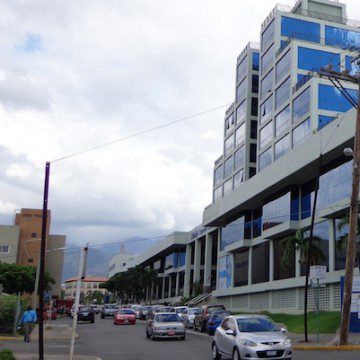Cyprus and Jamaica

By Dennis Chung
CJ Contributor
PROBABLY THE MOST senseless decision I have ever seen in my lifetime, was the decision by the Cyprus government and European Union to impose a levy of up to ten per cent on bank deposits.
I really cannot believe that persons interested in global market recovery, and solving the Cyprus problem, actually thought that this would have been an acceptable solution. In fact, the consequence of the decision is to cause risk aversion, and goes to the heart of what causes markets to function effectively.
I think the best thing should be for the persons responsible for this decision to identify themselves so that they could be on a list of “registered market offenders” just like the US have a list of “registered sex offenders”.
Any way this turns out there may still be a rush to pull deposits out of Cyprus banks, and what the proposal was trying to avoid may happen anyway. That is possible bankruptcy, and certainly capital movement away from countries like Cyprus that need the capital. This is indeed a big setback for developing countries that need capital to move to, not away from their banks.
In fact, the austerity policies being pursued across Europe, which seems to be the work of German influence, is actually sinking the European countries further into recession. Austerity, without adequate economic programmes, is like someone said to me this week, standing in a bucket and trying to lift it. Even the usually solid UK economy, is threatening a triple dip recession, as a result of the effect of the austerity programme pursued some three years ago.
When asked on Facebook about whether the Cyprus situation could happen in Jamaica, my response was a definite “No!”. Say what you want about our politicians, they would never do something like this. In fact I don’ know anyone outside of the Cyprus government who would have agreed to this decision. My own feeling is that they may have no option but to resign in order to restore confidence.
The Cyprus situation has caused persons around the world to remind themselves (once again after 2008) about how fragile financial markets are, especially in today’s technologically interconnected world. The fact is that markets, and market transactions, are based fundamentally on trust. Trust in the market. Trust in the regulatory environment and justice system. Trust in the security forces.
Irrespective of how many laws we have on the books, what it shows is that the laws are only meaningful if everyone accepts them as the way to function. One of the roles of government is to ensure that the trust is maintained, as any breakdown in that trust causes increased risks, which lead to macroeconomic instability.
In the case of Cyprus, the government was the one that betrayed that trust and created market instability.
This Cyprus fiasco should cause us to reflect on understanding what is required to improve our own economic fortunes. It provides an avenue for reflection on how we have approached market development, and what we have been doing wrong, thereby resulting in Jamaica not seeing any growth of consequence since the late 1980s and even then it was too short a period to have any long term effect.
What we must understand is that government cannot by itself provide a sustainable growth path. What government can do is provide welfare, short term stimulus to the economy, or an environment that facilitates a path for private sector development. In other words, the best role for the government is to stimulate or facilitate economic activity, but not to seek to try to create economic development.
Economic development (activity) is best done by working though the private sector. It is only the private sector, and not public sector, that is motivated to be efficient through the profit motive, and ultimately improve market and country competitiveness. It is only the private sector that can take advantage of the comparative, and competitive, advantages of economies. Not the public sector.
One of the main problems that Jamaica has faced since independence (and possibly before) is that our government seeks to get involved too much in the economy, and by doing so creates a crowding out effect on private sector development. This desire to be involved in the economy, and be the hero of Jamaican’s economic salvation, has caused the over taxation of production, over emphasis on welfare, and the increased and slow moving bureaucracy. It has also resulted in a private sector that in many respects is uncompetitive because of the fifty years of government effectively telling it how to run its business, through fiscal, monetary, and regulatory policies aimed at ensuring the survival of big government rather than private sector development.
As far as I am concerned the main thrust of the austerity policies, including Cyprus, coming out of the 2008 recession, has been to ensure the survival of government bureaucracy, through emphasis on fiscal adjustment. Only in countries like the US, Brazil, and China has the emphasis (through stimulus programmes – not necessarily just new cash) been on spurring growth through private sector resuscitation.
It is this philosophical difference, and deep understanding of what sustains the fragile balance of a market economy, that has led the US to turn around the fortunes of their economy, unlike the economic death sentence that Europe seems doomed to, and the seemingly haste with which Cyprus seems to want to carry out that death sentence by slitting its own throat.
Dennis Chung is a chartered accountant and is currently Vice President of the Institute of Chartered Accountants of Jamaica. He has written two books: Charting Jamaica’s Economic and Social Development – 2009; and Achieving Life’s Equilibrium – balancing health, wealth, and happiness for optimal living – 2012. Both books are available at Amazon in both digital and paperback format. His blog isdcjottings.blogspot.com. He can be reached at drachung@gmail.com.







